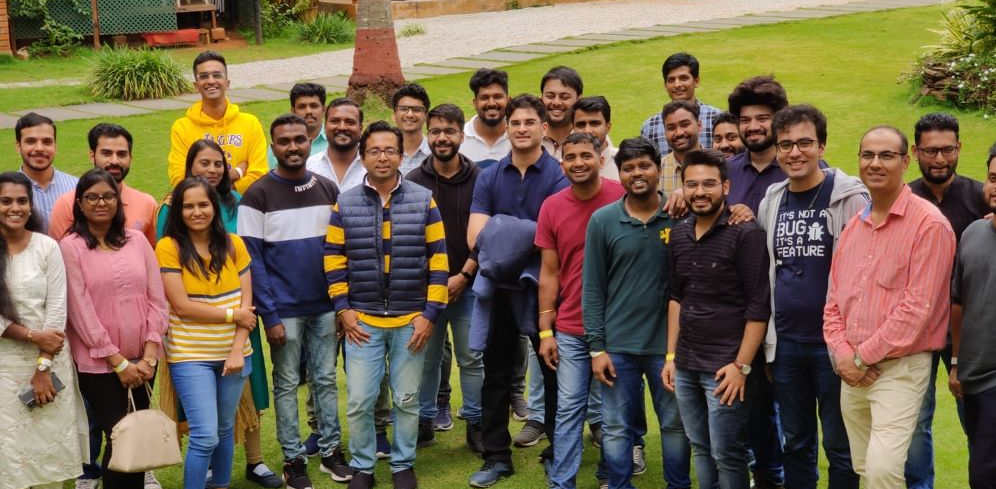Rethinking Family Businesses through the Lens of Family Soft Power
As the largest indoor venue in Europe which hosted the Taylor Swift concerts, the Paris La Defense Arena took center stage during the Paris Olympics as the site for the swimming and water polo games, drawing athletes and audiences from all over the world. The Nanterre arena is owned by entrepreneur Jacky Lorenzetti, who not only leads the family enterprise Ovalto but is also a sports fan who owns the French rugby team Racing 92.
The arena’s 1600 square meter screen is the largest in France and the venue also has retractable bleachers that have a capacity of 30,000 people for a rugby match and 40,000 people for a concert. Notably, there is a social dimension to Ovalto’s staging of the swimming and water polo games. While two temporary swimming pools of 50 by 25 meters were installed, one for the competition and the other for the warm-up, the pools will be dismantled after the Olympic and Paralympic Games and rebuilt in Seine-Saint-Denis to teach thousands of children to swim.
Jacky’s endeavours in sports are a departure from Foncia, the real estate business that he built in Europe, which he sold in 2007. Given that sports are one of the most effective means for engendering attraction, admiration, and aspirations, Jacky’s active involvement with the Olympics is arguably an example of how “soft power” – a term initially coined by Harvard professor Joseph Nye – can attract and persuade in a family business setting beyond the context of nation-states.
Indeed, family “soft power” can be defined as a family’s ability to influence the action, inaction, position, and behaviour of other actors through its non-coercion capability, in other words, through elements such as culture, values, and policies. Not only does this help family businesses win social trust and demonstrate social commitment; in many cases family members, like Jacky, are able to find their passion through initiatives that go beyond the pursuit of the financial bottom line, becoming more committed and dedicated to their family businesses or family initiatives.
These insights are particularly relevant to families in mainland China, where succession is an acute problem and where a recent survey by Shanghai Jiaotong University showed that as much as 80% of next-generation family members would opt out of succeeding their parents if given the choice. Indeed, the development of “soft power” initiatives can help next-generation family members find reason, meaning, and above all, passion to remain engaged in the family.
Take, for example, Yashovardhan Lohia, a second-generation member of Thailand-based Indorama Ventures, who found his enthusiasm for sustainability at the world’s largest PET producer, first as the company’s first-ever Chief Recycling Officer, later as Chief Sustainability Officer, and now as Chair of the company’s ESG Council.
Given Indorama Ventures’ unique position in the PET ecosystem, Yash provided strategic leadership to make recycling a distinct vertical within the company that is separate from the PET and fiber divisions, helping brand owners meet ambitious targets. As of September 2023, the company had recycled 100 billion post-consumer PET bottles across 20 recycling facilities in Asia, Europe, and the Americas.
A family can also amplify “soft power” through structures and vehicles that are outside of the bounds of the legacy business. A good example is what Nachson and Arieh Mimran, third-generation members of Groupe Mimran, have achieved through to.org, a combination of a venture fund and a charitable foundation. Inspired by their experience of growing up between the vastly different countries of Switzerland and Senegal, where Groupe Mimran is the largest private sector employer, Nachson and Arieh have focused their efforts on scaling decarbonization, refugee empowerment, and human optimization.
The investments in the to.org venture fund are accompanied by the unusual criterion of achieving spiritual returns, defined as whether as investors they would believe that they made the right decision at the right time, for the right reason, 50 years from the present. With this in mind, the brothers have invested in companies like mPharma and Wasoko that improve healthcare access and support the informal economy in Africa.
Meanwhile, their non-profit initiatives include projects like the Bidi Bidi Performing Arts Centre in Africa’s largest refugee settlement which is home to over 285,000 displaced people. The centre has been thriving since its inauguration in early December 2023 and has swiftly become a hub where youth gather to share music and dance traditions and develop stronger community bonds. The foundation’s upcoming project also focuses on the provision of creative infrastructure and will be unveiled later this year in Kenya’s Kakuma settlement.
In the United States, Robert Fisher, a second-generation member of the Gap Inc. family, has also channelled his passion for sustainability through his family foundation Pisces Foundation. Since 2013, the foundation has awarded over 1,100 grants to 350 organizations, contributing to reductions in hydrofluorocarbon, methane, and black carbon emissions, enhancing environmental education, and improving urban water management.
Robert is also on the board of Conservation International, which focuses on protecting nature, biodiversity, and human well-being, and serves as Chair Emeritus at the Natural Resources Defense Council, which addresses climate issues, wildlife protection, and access to clean air, water, and healthy communities.
Beyond his efforts for the environment, Robert preserves the family’s legacy through his stewardship of the Doris and Donald Fisher Collection, a renowned contemporary art collection featuring works by artists such as Alexander Calder, Gerhard Richter, and Andy Warhol. The collection is exhibited at the San Francisco Museum of Modern Art, where Robert serves as Board Chairman.
In conclusion, initiatives for family “soft power” are not only about the external function of demonstrating commitment to sustainability and community betterment; they also have the internal function of keeping next-generation members engaged in the family. Globally, family “soft power” can help family businesses achieve multiple objectives, in an era where it is increasingly important for companies – and not just countries – to draw attraction and admiration in the domestic and international arenas, so that they can leave a legacy that will last for generations.
Article by:
Roger King, Senior Advisor and Founding Director of the Roger King Center for Asian Family Business and Family Office, Hong Kong University of Science and Technology
Pauline Yeung, Founder, Knitknot Global; Author, Asia Case Research Centre, Hong Kong University; Asia 21 Next Generation Fellow, Asia Society
Fiona Fu, Editor-in-Chief, The Choate News



